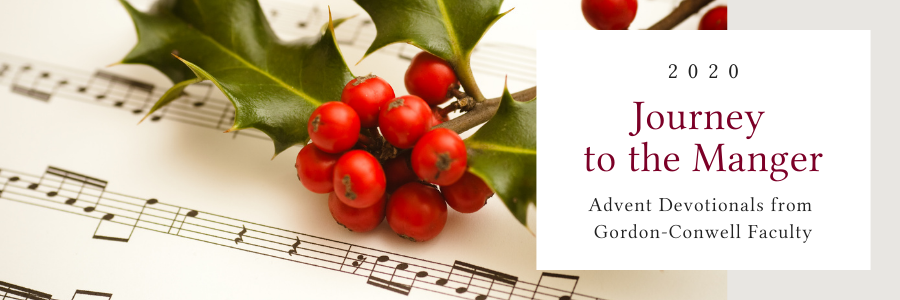Advent Devotional: “Hark the Herald Angels Sing”

Dr. Scott W. Sunquist
What a joy to sing such profound, engaging, and deep theology in a hymn like “Hark the Herald Angels Sing.” Let’s walk through it together.
I suppose there are different types of angels like there are different types of people. People have different callings and gifts. Some angels are warriors, vigilant defenders of what is holy and righteous. Other angels are messengers who “herald” good news. In fact I guess all angels, in a sense, are messengers since angelos (Greek) means messenger. And as messengers from the Triune God they bring, or herald for humanity Good News (euangelion: good news). Angels are evangelists!
If ever there were a season of heralding good news it is Advent. Imagine a massive and powerful and beautiful creature of God appearing before us and announcing with a booming voice this good news: “Glory to the new-born king: peace on earth and mercy mild, God and sinners reconciled!” This is the best news one could ever hear. Reconciled. God and his image bearers reconciled.
With such good news from such a powerful being what is our response? We are immediately invited to join not just this one angel, but a host of angels in heavenly praise: “Joyful, all ye nations rise, join the triumph of the skies; with the angelic host proclaim, ‘Christ is born in Bethlehem.’” There it is, the heavenly, divine and mysterious connected with the earthly, specific and local: a real baby is born in a town, Bethlehem. All the nations (universal) are invited to join in praise for this one baby (particular).
The second verse of “Hark” is a beautiful meditation on the mystery of the incarnation. The Messiah is the highest in heaven and he is the eternal Lord: “Christ, by highest heaven adored, Christ the ever-lasting Lord.” But he is born to a young woman, a virgin. So, the virgin birth functions as a focal point on this mystery. This is a birth, but it is a miraculous birth! Then it is explained further that Jesus is the “incarnate Deity.” He is God with us who is “pleased with us in flesh to dwell.”
The third verse continues in praise for all that the Messiah is, and will be, and what he will do. He is the Prince of Peace, the Sun of Righteousness. He is our light and our life. He brings healing and he humbled himself (“mild he lays his glory by…”) so that we would be raised to second birth.
A brief little hymn of praise to Jesus for who He is, what He has done, and what He will do. This Christmas I am meditating on one important characteristic of Jesus that is emphasized in both the first and the last verses: “Peace on Earth” and the “Prince of Peace.” “Jesus, bring us peace. Amen”
Listen to these renditions:
Celtic Women Live At The Helix in Dublin, Ireland

Scott W. Sunquist is President of Gordon-Conwell Theological Seminary and a Professor of Missiology. His weekly blog “Attentiveness” is posted each Tuesday morning on the Gordon-Conwell web site.